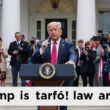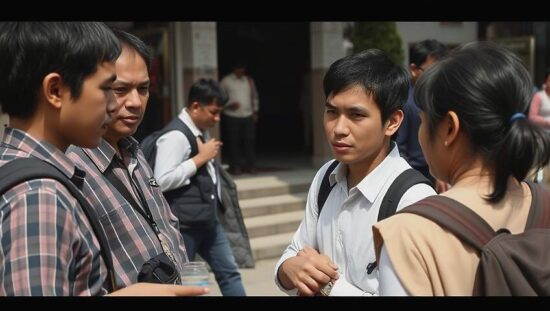Concerns and criticisms are mounting within Germany’s Social Democratic Party (SPD) regarding the recently agreed-upon customs arrangement between the European Union and the United States. Several prominent figures have voiced apprehension, framing the deal not as a breakthrough but as a demonstration of European vulnerability.
Katarina Barley, Vice-President of the European Parliament and an SPD politician, told the Tagesspiegel newspaper that the agreement represents a capitulation to significant pressure. She argued that the outcome falls short of a fair and equitable accord, potentially burdening key European industries and exacerbating structural dependence on the United States. Barley emphasized that the implications extend beyond mere tariff adjustments, encompassing Europe’s strategic sovereignty. She strongly advocated for increased investment in critical technologies, a European-developed digital infrastructure and a shared security framework as essential steps for Europe’s global standing.
SPD Deputy Chairman Achim Post has urged the German Minister for Economic Affairs, Katherina Reiche (CDU), to take decisive action. While acknowledging the avoidance of a trade war as a positive, Post expressed reservations regarding the U.S.’s inherent risk profile, particularly given the potential for a return to policies under a future Trump administration. He called for the EU and Germany specifically, to act with greater speed, autonomy and resilience, placing responsibility on the new Economic Minister. Post underscored the importance of safeguarding the future of the export-oriented German economy, prioritizing it over domestic policy debates like pension reform.
Jochen Ott, leader of the SPD parliamentary group in North Rhine-Westphalia, characterized the EU-U.S. agreement as an act of “appeasement” in economic policy. Ott expressed his concern that the tariff deal disadvantages the European economy and is unacceptable from the perspective of North Rhine-Westphalia. He criticized the focus solely on the automotive industry, arguing it neglects the broader industrial structure of the country and the importance of steel production for even the electric vehicle sector. Ott called for revisions from the Commission and urged stronger engagement and support from German Chancellor Merz and the Minister-President of North Rhine-Westphalia, accusing them of potentially overlooking the region’s steel industry.
Ott’s assessment echoed a broader sentiment, describing the agreement as unsustainable and detrimental to Europe’s economic power. He voiced concerns that it will necessitate funding for tax breaks benefiting American billionaires and millionaires, branding it a form of extortion. He further stated that Europe’s inability to guarantee its own security leaves it susceptible to manipulation.





